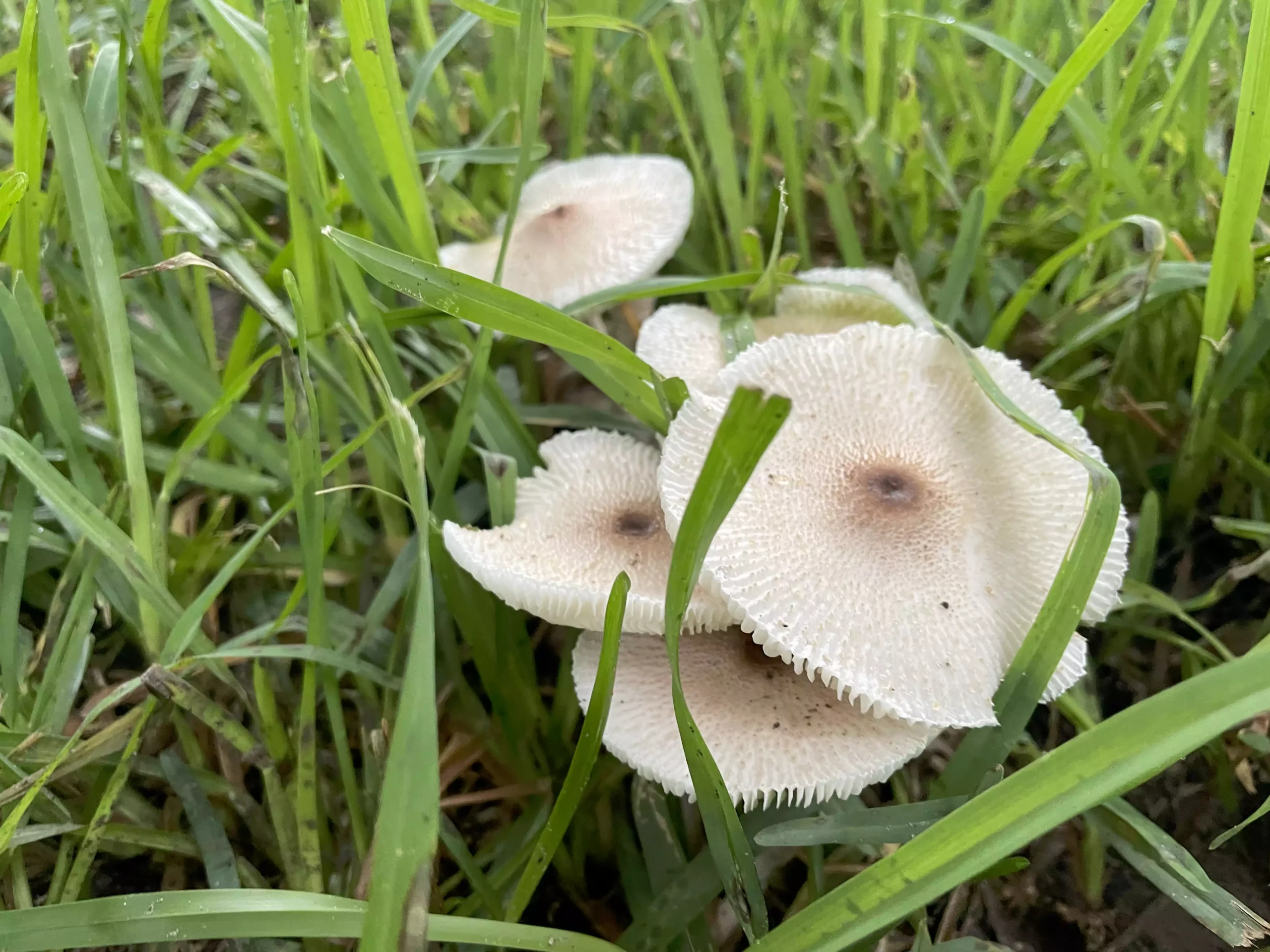Garden mushrooms are a year-round hazard for dogs and outdoor cats in Central Texas. That’s because our lawns become breeding grounds for fungi after winter, springtime and summer rains.
While some mushrooms are harmless, others can be toxic. The results of eating one can range from mild gastrointestinal issues to severe poisoning
Dr Natalie Davis, a veterinarian at Firehouse 183, shares what to do if your dog or outdoor cat eats a mushroom. It could save their life!
What if my dog ate a mushroom from the ground?
Act fast if you see your dog eating a mushroom. “Some mushrooms are harmless,” says Dr Davis. “Others can cause gastrointestinal upset (vomiting or diarrhea) or more severe illness in your dog.”
Call your vet or the ASPCA Pet Poison Control Hotline (888. 426.4435) to describe the mushroom and get advice on next steps. It’s also helpful to get a photo of the mushroom they might have eaten.
How can I prevent my dog from eating mushrooms?
Prevention is key when it comes to mushrooms in our yards. “Check your yard regularly,” says Dr Davis. “Especially after rain to remove mushrooms.”
Stay alert when walking your dog. Make sure they’re not wandering off and eating anything unknown.

It’s hard to know which mushrooms are safe or toxic, even for seasoned gardeners. Assume they’re all hazardous and keep your pets away from them.
Are grocery store mushrooms toxic to dogs?
No. Grocery store mushrooms are safe for dogs and cats.
Dr Davis reassures us, “If you drop a mushroom while cooking or your dog gets a small bite from leftovers, there’s no need to worry.”
What if my dog only sniffs a garden mushroom?
If your dog sniffs a mushroom, there’s generally no cause for concern. Mushrooms are toxic only when ingested.
Firehouse loves to educate Austinites about pet care. Dr Sherry Hill at Firehouse Cedar Park speaking with Sean Kelly at KXAN about protecting your pets from post-rain mushrooms.
What about our outdoor cats? Are garden mushrooms also toxic for them?
For outdoor cats, the same rules apply. While cats may be more independent and harder to monitor, it’s important to observe any unusual behavior.
“If your outdoor cat starts acting off or vomits after being outside, call your vet,” Dr Davis says. “Mushrooms can be tricky to identify, so it’s better to be safe and get professional advice.”
Pets can get into things they shouldn’t and we’re not here to judge. Life happens and we’ll support you and your pet. Visit this blog for more tips on what to do if your pet eats something toxic (chocolate, over-the-counter meds, onions, grapes, etc).
Keep the holidays less stressful. Know the foods your pet can eat from the Thanksgiving and Christmas dinner menu.
If you think your pet has eaten something harmful, please call us or book your appointment online.
